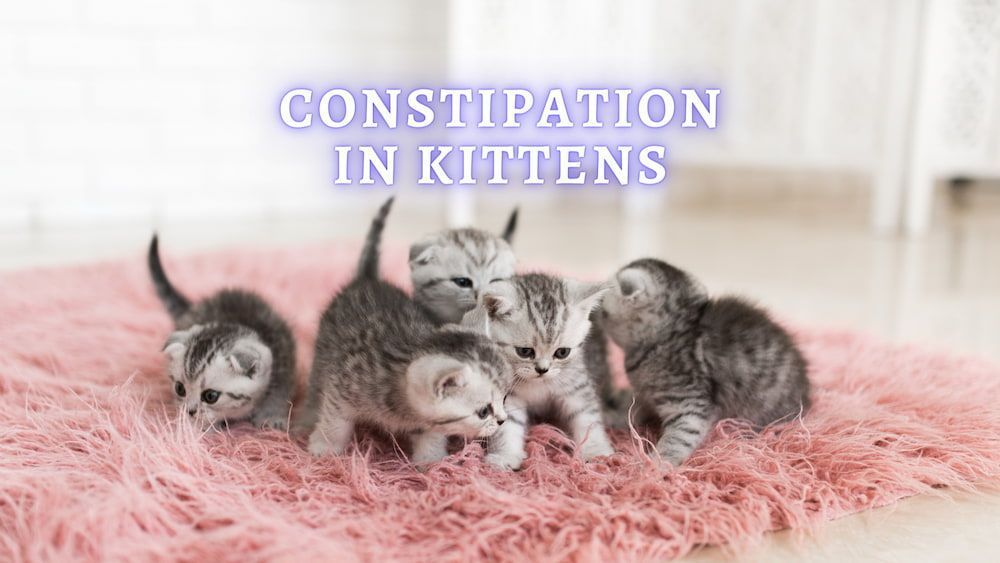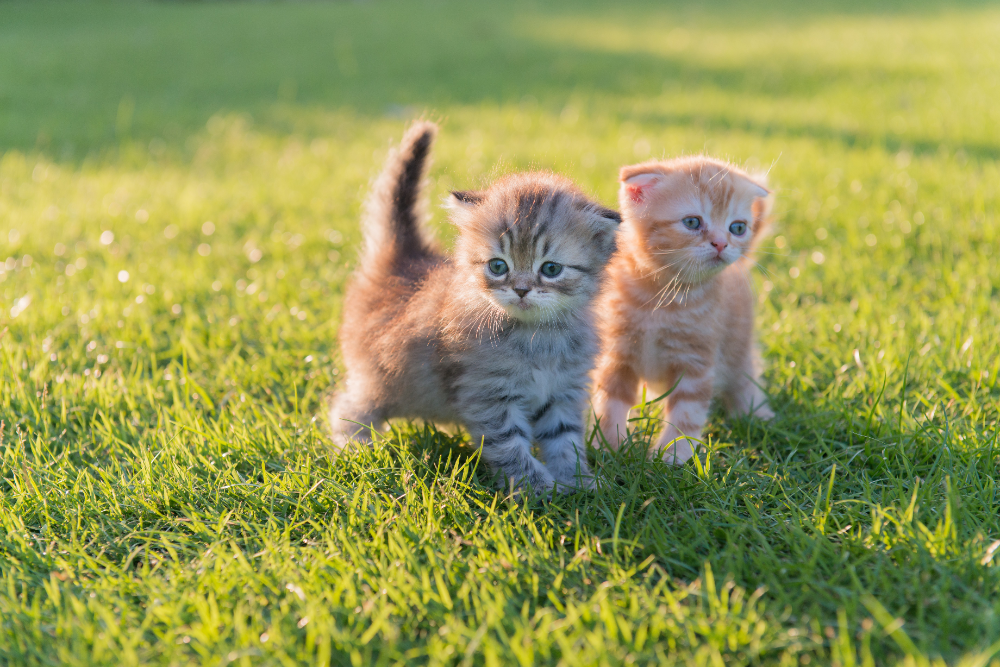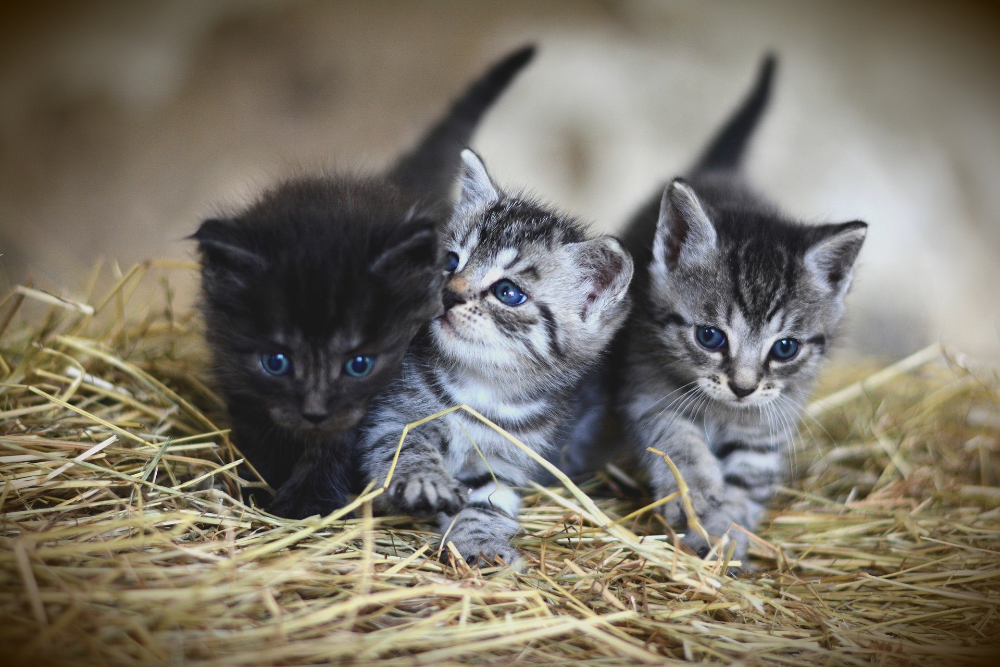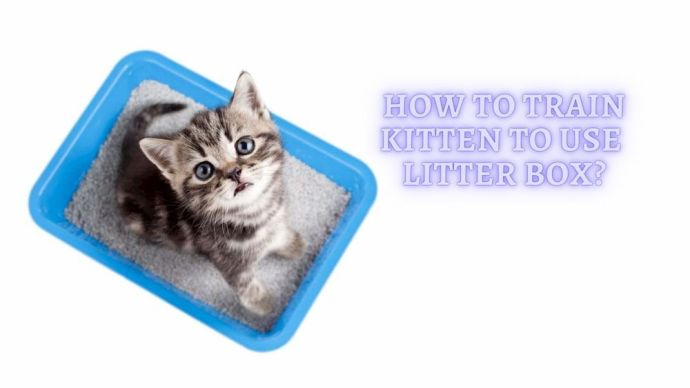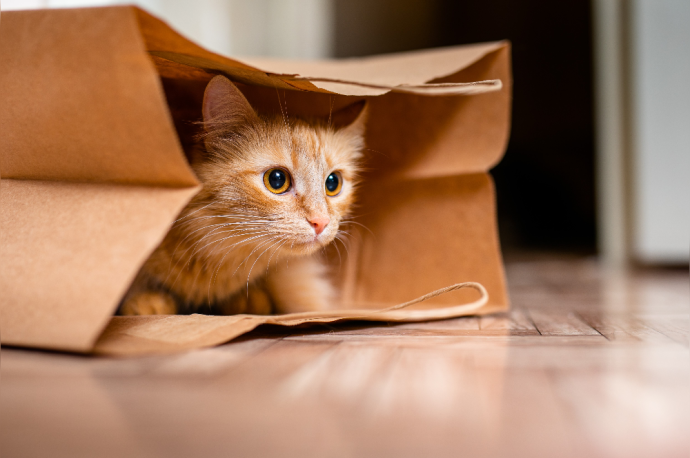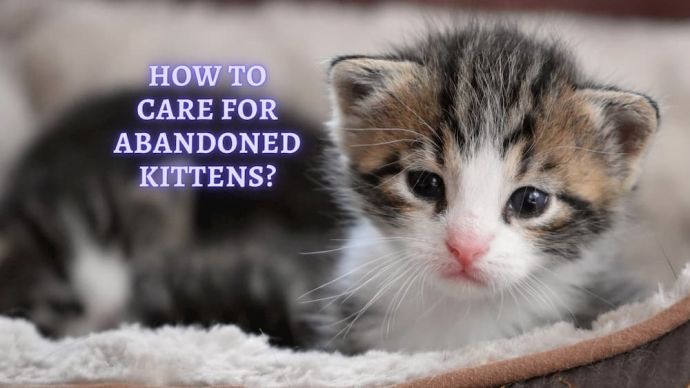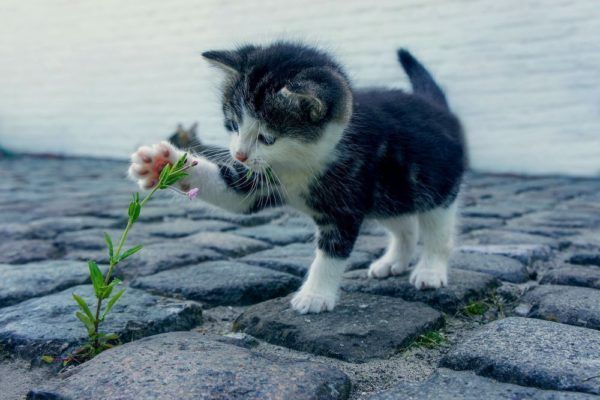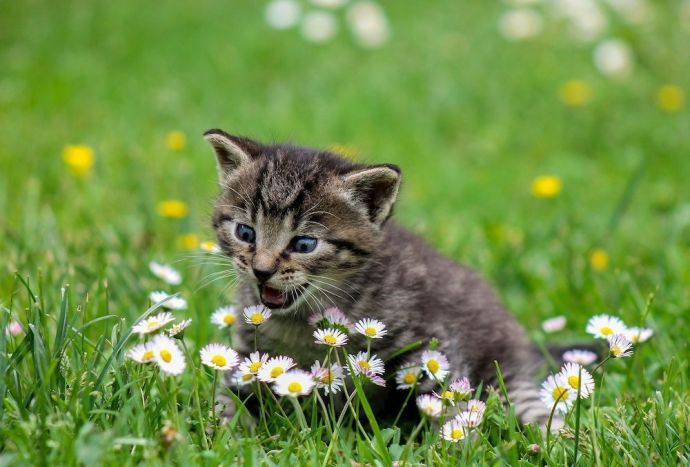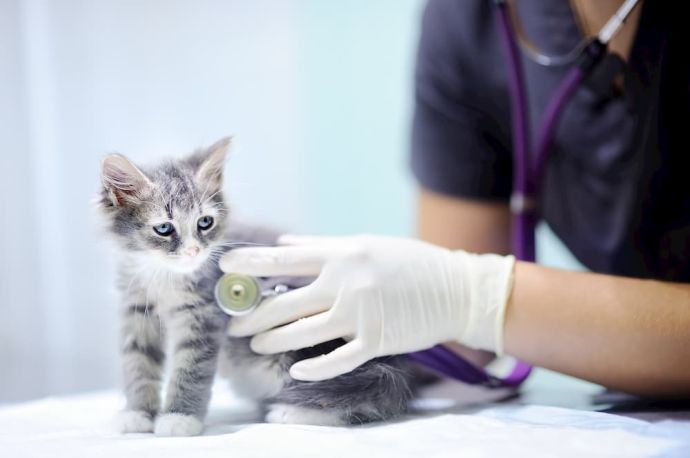Kitten Constipation: Causes, Symptoms, and Treatment
Written by:
Author: Dr. Linda Simon
Dr. Linda Simon is a veterinary surgeon working with seven years of experience. She is a fellow of the British Veterinary Association and specializing in animal medicine. Also, she has been the Woman magazine resident vet for the past two years and writes a regular column for them, focusing on pets and their health.
View all 30 articlesLearn about our editorial process and veterinary review board.
Viewed: 5544
Updated on: 07/21/2021
Causes of Kitten Constipation
Constipation in young kittens is relatively uncommon, especially if their mother is healthy and nursing well. Naturally, a mother cat will lick their little one’s hind end to encourage them to pass both feces and urine. If raising orphan kittens it is vital to mimic this behavior with some warm, wet cotton wool to prevent constipation from occurring. This must be done after every feed until they reach roughly three weeks of age.
Older kittens may develop constipation when weaned onto solid food or when their diet is changed. This is especially common if their diet is changed abruptly or if they are fed the wrong food, such as adult cat food. Constipation can also occur if dehydrated or if taking certain medicines.
In more mischievous kittens, we can see constipation due to a blockage in the gut. For example, if your little furball has decided to chow down on a ribbon or some tinsel, this can mean that the feces becomes trapped and is not passed as it should be.
Rarely, constipation can be linked to more serious genetic or congenital diseases such as atresia ani, whereby the anus has not formed properly. For some, their anus will be narrowed. For others, there will be no anus at all and they are completely unable to pass feces.
Potential causes of constipation in kittens include:
- Poor appetite and dehydration
- Lack of stimulation (either from the mother cat or the carer, who needs to stimulate the passing of feces with wet cotton wool regularly)
- Congenital defects
- Diet change or inappropriate diet
- Medication
- Blockages due to e.g. foreign bodies or parasite burdens
Symptoms
Signs are difficult to miss and most owners will pick up on the signs quickly.
More common symptoms to watch out for include:
- Straining non-productively
- Vocalizing when passing stool
- Passing small amounts of very firm stool
- A failure to produce stool at all.
In young kittens who don’t have a lot of body fat, you may even notice that their abdomen is bloated and tense. If you gently press the tummy, you might feel a lot of solid material, and the kitten will act uncomfortable when being pressed.
How long a kitten can go without producing feces will depend on its age. Younger kittens should go a lot more regularly than adult cats. A few days without passing stool is a real red flag.
In some instances, you may see some blood or mucus (stringy, slimy stuff) in the poo that is passed, and the anus may appear red and swollen. Some kittens will lick their hind end due to the discomfort caused.
How do Kittens act when Constipated?
The hallmark of constipation is a failure to produce stool or the production of only a small amount of feces.
Those with more severe constipation may be seen to act very under the weather. You might find they hide away and go off their food. While some will try to pass feces and strain in their tray, not all will do this.
In extreme cases, your kitten may begin to vomit and could even go into shock. As soon as your kitten starts to show signs of being unwell, they should be seen by a vet.
Treatment
The safest ‘laxative’ is water. For many kitties, if we improve their hydration levels, they will pass softer stool and their constipation will ease. This may mean adding warm water to their food or even gently syringing some water into their mouth. Once weaned, it’s best not to give milk as this can actually cause stomach upset.
Home Remedies
Tinned pumpkin is a good natural laxative as it is high in fiber, be sure to buy the variety that does not have added sugar or cinnamon. Most cats enjoy the taste and are quite happy to eat it alongside their normal food.
Wheat bran and other high fiber cereals may also be used, though opt for those options that are low in sugar. This cereal can be sprinkled over food for a few days.
Home remedies can be useful in the early course of the treatment but are unlikely to be strong enough when a kitten is moderate to severely constipated. Certainly, it is worth trying some home remedies if your kitty still seems well.
Olive Oil for Kitten Constipation
Oils such as mineral oil, olive oil, or coconut oil are not recommended for constipation, regardless of what some online sources may tell you. When syringed or spoon-fed, there is a risk of them being inhaled and leading to aspiration pneumonia. On top of this, they are so high in fat that they often cause digestive upset.
How to make a Constipated Kitten Poop?
It’s only natural to want to help your kitten out when they are uncomfortable and struggling to pass poop. Mild constipation can generally be remedied at home. We can be sure to:
- Provide plenty of water.
- Double check the correct kitten milk and/or food is being offered. Using preparations not meant for kittens can quickly lead to constipation.
- Keep kitty active with lots of playtime and games. The more they move, the more their gut will move.
- Gently bathe kitty in a shallow warm bath. Hold them the whole time and keep this mini adventure short. Dry them well afterwards to prevent a chill.
- Discuss things with your vet. They may advise on a safe, mild laxative to use at home.
READ MORE: When Do Kittens lose their Teeth?
Prevention
There are plenty of things that can be done to keep your kitty’s digestive tract ticking over nicely. Constipation happens when the gut moves too slowly, too much water is absorbed from the stool and the stool becomes too hard to pass. We can prevent this by:
- Making sure our furry friend is eating and drinking well
- Treating any other feline health issues (such as vomiting or parasites) that may present
- Keeping kittens active. Lazy kittens that don’t exercise much can develop a sluggish gut
- Not over feeding
- In younger kittens, we may need to stimulate them to produce feces by gently rubbing their back end with warm, wet cotton wool
What can a Vet do?
If the constipation is not resolved quickly or the kitten seems in pain or unwell, a trip to the vet is in order. They can check the kitty from nose to tail to determine if there are any underlying issues. They can assess for dehydration and determine the degree of constipation.
Depending on how bunged up the cat is, it may be necessary to start them on intravenous fluids and to perform an enema. If the constipation is mild, they may simply send them home with an oral laxative.
Those that experience chronic constipation issues should always be examined by a vet to determine the cause.
FAQ
ᐈ What about constipation in an Older Cat?
Just like kittens, cats of all ages can suffer with constipation. In fact, it would be more common for an adult cat to suffer with constipation than a kitten. The causes are similar (poor diet, lack of exercise, poor hydration) and constipation can usually be managed with appropriate diet and lifestyle changes.
However, we do need to be aware of a condition known as ‘Megacolon’. In this disease process, the colon loses the ability to move the stool along and the cat becomes chronically and severely constipated.
ᐈ Can massage help a Constipated Cat?
Absolutely, as well as increasing general activity and exercise levels, giving your kitty a little belly massage (if they allow it!) can prove useful. It’s important to be very gentle and never force your cat to accept the message if they are too uncomfortable. Most will only tolerate a minute or two of gentle rubbing of their lower abdomen before getting up and leaving!
ᐈ Can a Cat die from Constipation?
In the most severe of cases, prolonged constipation can distend the colon and result in a life-threatening condition called ‘megacolon’. Those with underlying motility disorders, previous pelvic injuries or who become regularly constipated are most at risk of developing this disorder. Rehydrating animals, providing enemas and medical therapy can often prove useful, however, some patients do require surgical intervention in the long run.
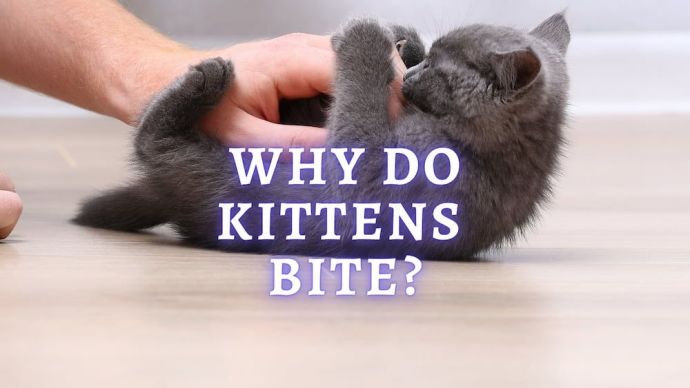 Kitten Care Why Do Kittens Bite? Reasons Why Do Kittens Bite And Ways To Stop Your Kitten Biting You
Kitten Care Why Do Kittens Bite? Reasons Why Do Kittens Bite And Ways To Stop Your Kitten Biting You - 127
- 0
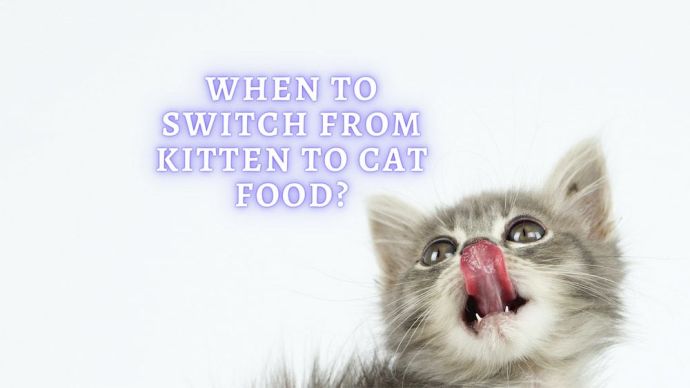 Kitten Care When to Switch from Kitten to Cat Food: Vet Advice on Switching on Adult Cat Food
Kitten Care When to Switch from Kitten to Cat Food: Vet Advice on Switching on Adult Cat Food - 309
- 0
 Cat Care Why Does My Cat Attack My Legs? 10 Reasons Why and What To Do About It (Vet-Approved Advice)
Cat Care Why Does My Cat Attack My Legs? 10 Reasons Why and What To Do About It (Vet-Approved Advice) - 45093
- 21
 Cat Veterinary Tips Cat Stomach Gurgling: Vet Advice on Why is Your Cat Stomach Gurgling?
Cat Veterinary Tips Cat Stomach Gurgling: Vet Advice on Why is Your Cat Stomach Gurgling? - 33739
- 4
 Cat Veterinary Tips My Cat Lost its Voice: Can Cats get Laryngitis? (Vet Advice)
Cat Veterinary Tips My Cat Lost its Voice: Can Cats get Laryngitis? (Vet Advice) - 22891
- 13









